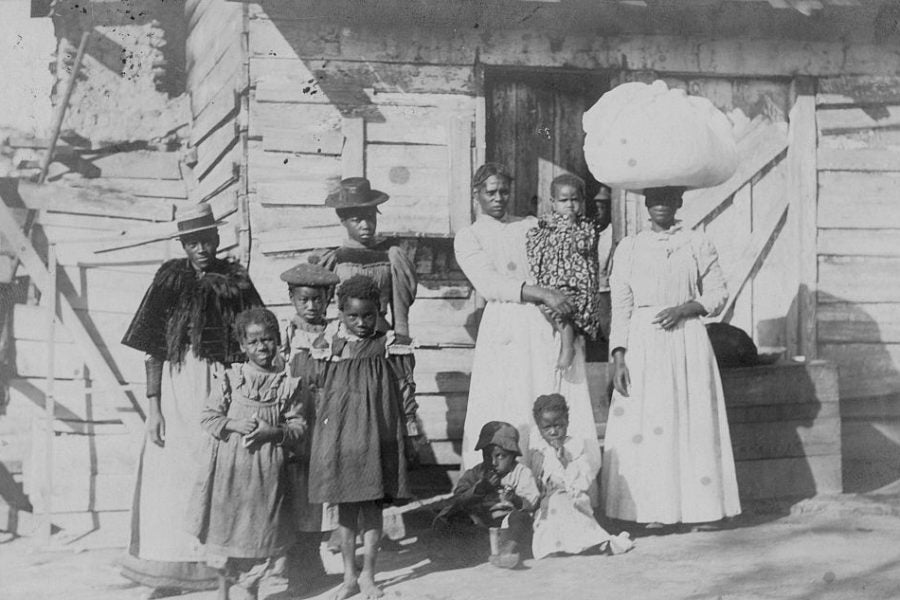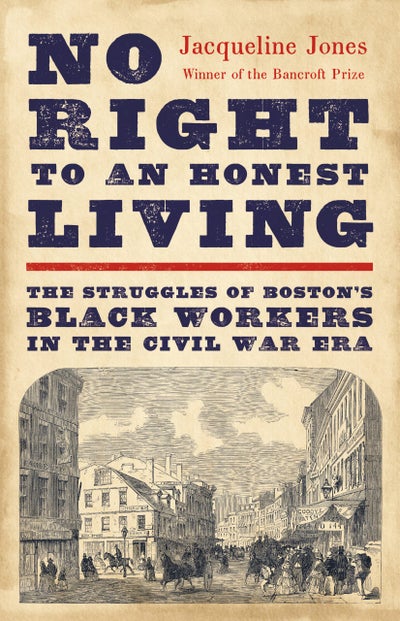
Most of us have long been taught that during the Civil War, the North was the “good” to the South’s “bad” and the place to go for our people’s freedom and prosperity. But in her latest book, NO RIGHT TO AN HONEST LIVING: The Struggles of Boston’s Black Workers in the Civil War Era, eminent historian and two-time Pulitzer Prize finalist Jacqueline Jones seeks to rectify the situation and debunk this myth.

From chapter to chapter, Jones delves into the everyday realities of what it meant to be Black in Boston during this time period, explaining how “[b]efore, during, and after the Civil War, white abolitionists and Republicans refused to secure equal employment opportunity for Black Bostonians, condemning many of them to poverty…[and] how injustice in the workplace prevented Boston—and the United States—from securing true equality for all.”
This Black History Month, ESSENCE had the opportunity to talk with Jones about her newest book, the inspiration for her writing, and what she hopes for readers to learn.
This interview has been edited for length and clarity.
ESSENCE: What inspired you to write about this topic?
There’s a lot of wonderful work on antebellum America, pre–Civil War America, and the Black struggle in the North for legal rights like the right to vote, the right to serve on juries, interracial marriage, and integrated schools.
But I noticed in those works that there was very little about work, and work is a central lived experience for most people. I just felt that we had to look at how people made a living in order to really understand the North, and in particular Boston during the 19th century. That was my motivating factor—we really need to bring the issue of work back into this conversation to look at what was going on in the North and to remind ourselves that, although we think the North was liberal, Boston, which was a hub of radical abolitionism, was overall a very conservative city, and I think that has a lot to tell us about the struggles of Black men and women in the North in general.
[W]when it comes to the welfare of their Black neighbors in Boston, white abolitionists seem to be indifferent.
ESSENCE: Your book upends this image of Boston as being this bastion of forward thinking and abolitionism. What was your initial reaction to uncovering this knowledge?
I really took my cue from Dr. John S. Rock whom I quote at the very beginning of the book. He gave a speech in 1860 saying that the white abolitionists in Boston were very well known and they were courageous because abolitionism was not a popular idea and Boston was a very conservative city overall. But he said, when it comes to the welfare of their Black neighbors in Boston, the white abolitionists seem to be indifferent.
They don’t hire Black people in their own offices or stores, they don’t advocate for workplace integration, they don’t talk about economic opportunity for Black people in Boston, and I was struck by the fact that he was willing to get up and criticize some very well-known abolitionists of the time. I also looked at the speech Frederick Douglass gave in Boston in 1853, where he said essentially the same thing that there seems to be a lot of attention which is needed obviously on enslaved people in the south, but these whites really don’t seem to care that much about the struggles of Black people who are living in the same city. That really alerted me to this issue of white allies and who they might be and how they had failed Black workers, and I thought how does one [Black workers] make strides in the workplace?
ESSENCE: The focus of this book is during the Civil War period, but how do you think things have changed since then for Blacks in Boston, and what message would you like for your readers to take away?
The book ends in 1900, but I do make the point that Black men and women were doing essentially the same kinds of jobs in 1900 that they were doing in 1840 or 1850. They really had not benefited from the Industrial Revolution after the Civil War, they had not benefited from the rise of the retail sector at all.
What that meant was, because they were confined to these low-paying, irregular jobs, they were not able to accumulate much in the way of cash or property so they had to continue to rent, remaining at the mercy of white landlords for the most part, and that just meant that they were going to be at a disadvantage long term with respect to their children and grandchildren, in terms of accumulating those assets that would allow for home ownership, and that certainly was the case through the 20th century as well.
I did want to make a point that throughout the book, though, I do look at Black workers who are very creative in making their own jobs and working together as family members to keep the household going, so it’s also a story of creativity and resilience as well as one of hardship and discrimination.







